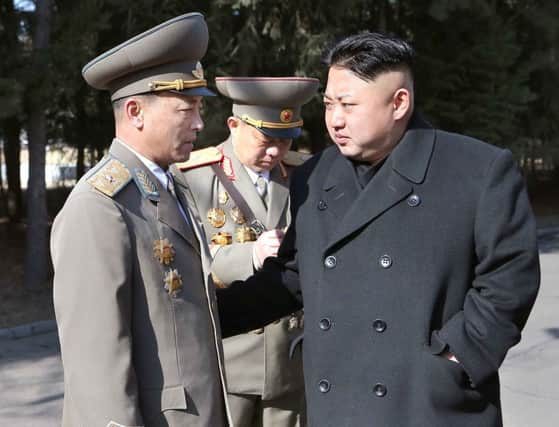Exposed: North Korea’s attempt to defeat sanctions


It said North Korea was also making use of intricate financial countermeasures and techniques “pioneered by drug-trafficking organisations” that made tracking its purchase of prohibited goods more difficult.
The report, compiled by a panel of eight UN experts, is part of an annual accounting of North Korean compliance with sanctions imposed in response to its banned nuclear programmes. The panel reports to the UN Security Council.
Advertisement
Hide AdAdvertisement
Hide Ad“From the incidents analysed in the period under review, the panel has found that North Korea makes increasing use of multiple and tiered circumvention techniques,” a summary of the 127-page report said.
China, North Korea’s main trading partner and ally, appeared to have complied with most of the panel’s requests for information. Some independent experts and western countries question how far Beijing has gone in implementing sanctions, although the report did not address that issue.
China has said it wants sanctions enforced.
Much of the report focused on North Korea’s overseas trade networks, rather than its relationship with China. The panel said it found a relatively complex “corporate ecosystem” of foreign-based firms and individuals that helped North Korea evade scrutiny. North Korea’s embassies play a key role in aiding and abetting these suspicious companies, the report said.
The report said the missions in Cuba and Singapore were suspected of organising an illegal shipment of Cuban fighter jets and missile parts seized on a North Korean container ship in Panama last July. It included secret North Korean documents addressed to the ship’s captain which offered detailed instructions on how to load and conceal the illegal weapons, and make a false declaration to customs officers in Panama.
Panama seized the Chong Chon Gang ship for smuggling Soviet-era arms, including two MiG-21 jet fighters, under thousands of tonnes of sugar. After the discovery, Cuban officials acknowledged it was sending “obsolete” Soviet-era weapons to be repaired in North Korea.
“Load the containers first and load the 10,000 tonnes of sugar [at the next port] over them so that the containers cannot be seen,” the document, translated from Korean, said.
Chinpo Shipping, a firm the report said was “co-located” with the North Korean embassy in Singapore, acted as the agent for a Pyongyang-based company that operated the vessel, and North Korean diplomatic personnel in Cuba arranged the shipping of the concealed cargo.
A North Korean embassy official yesterday denied the Singapore mission had engaged in any wrongdoing. The embassy had recently moved from the address listed, added the official, who declined to give his name.
Advertisement
Hide AdAdvertisement
Hide AdNorth Korea has gone to great lengths to mask the origin of its merchant shipping fleet by reflagging and renaming ships, the report said, particularly after the tightening of UN sanctions in early 2013 following North Korea’s third nuclear test.
Most of the registered owners of the ships are small firms owning a handful of vessels, meaning Pyongyang can keep its fleet running if a ship or shipping company is seized.
Under UN sanctions, North Korea is banned from shipping and receiving cargo related to its nuclear and missile programmes. The import of some luxury goods is also banned, as is the illicit transfer of bulk cash.